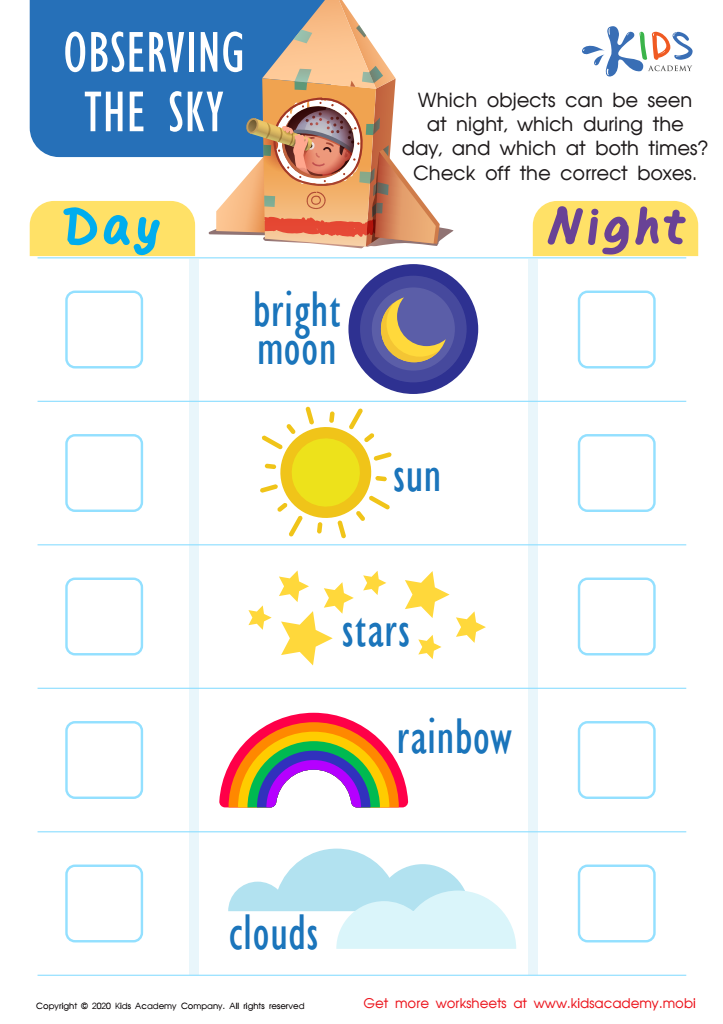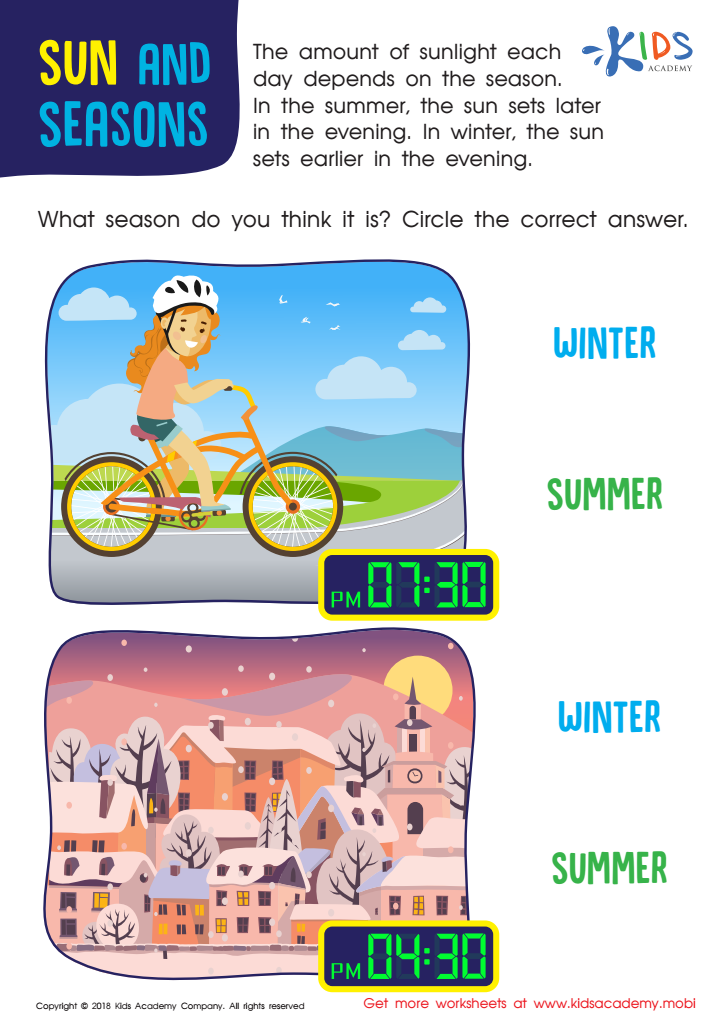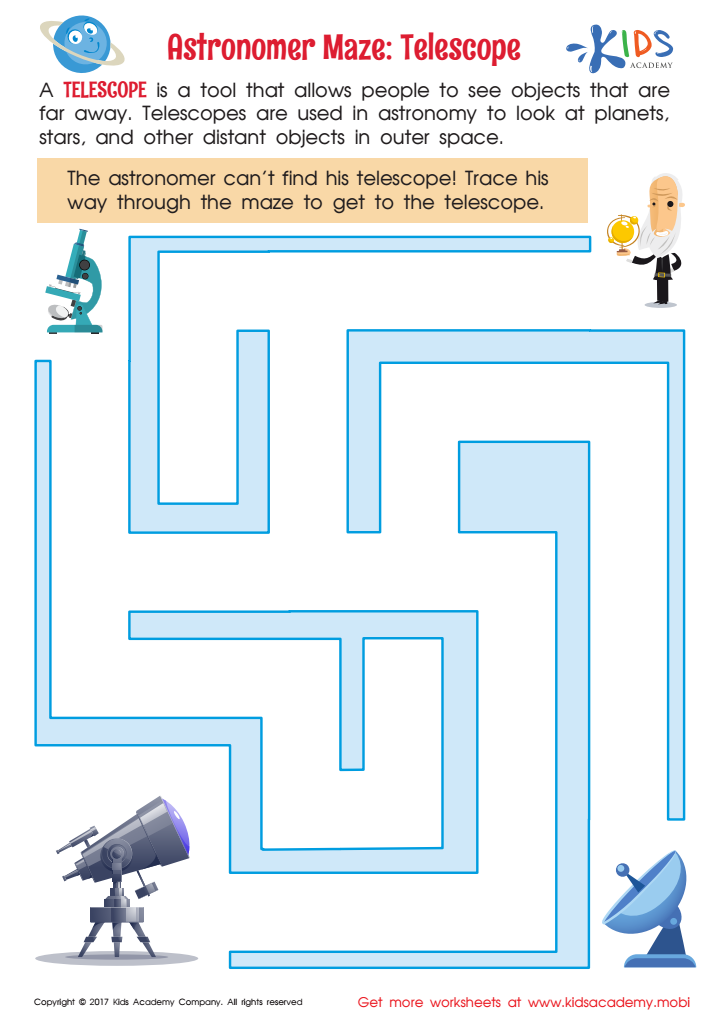Basic astronomy knowledge Grade 1 Science Worksheets
3 filtered results
-
From - To
Enhance your Grade 1 students' understanding of astronomy with our engaging Basic Astronomy Knowledge worksheets! Designed specifically for young learners, these worksheets cover essential concepts such as the solar system, the sun, moon, and stars. Each activity encourages exploration and curiosity about the universe while developing critical thinking and observational skills. With colorful illustrations and age-appropriate questions, students will enjoy learning about celestial bodies and their roles in the sky. Perfect for classroom use or at-home learning, these worksheets make science fun and accessible. Spark a love for astronomy in your little ones today with our comprehensive resources!


Observing the Sky Worksheet


Sun and Seasons Worksheet


Astronomer Maze: Telescope Worksheet
Basic astronomy knowledge is vital for Grade 1 students as it lays the groundwork for their understanding of the world and universe around them. Parents and teachers should prioritize this subject for several reasons. Firstly, astronomy nurtures children's natural curiosity about the sky and celestial bodies, fostering a lifetime love for science. Young learners are fascinated by stars, planets, and the moon, making it an engaging topic that captures their attention and encourages exploration.
Moreover, introducing basic astronomy concepts helps enhance critical thinking and observation skills. Children learn to ask questions, make predictions, and seek answers, fostering a scientific mindset essential for future learning. For example, students might wonder why the moon changes shape or what stars are made of, inspiring them to think critically.
Furthermore, teaching astronomy supports other subjects, such as math and geography. Understanding concepts like the seasons assists students in grasping changes in their environment. With the vastness of the universe, students also learn the importance of our Earth and its place within it, cultivating a sense of wonder and responsibility towards our planet's well-being.
In conclusion, a foundation in astronomy is significant as it stimulates curiosity, develops cognitive skills, and promotes interdisciplinary learning for young students.

 Assign to My Students
Assign to My Students




















